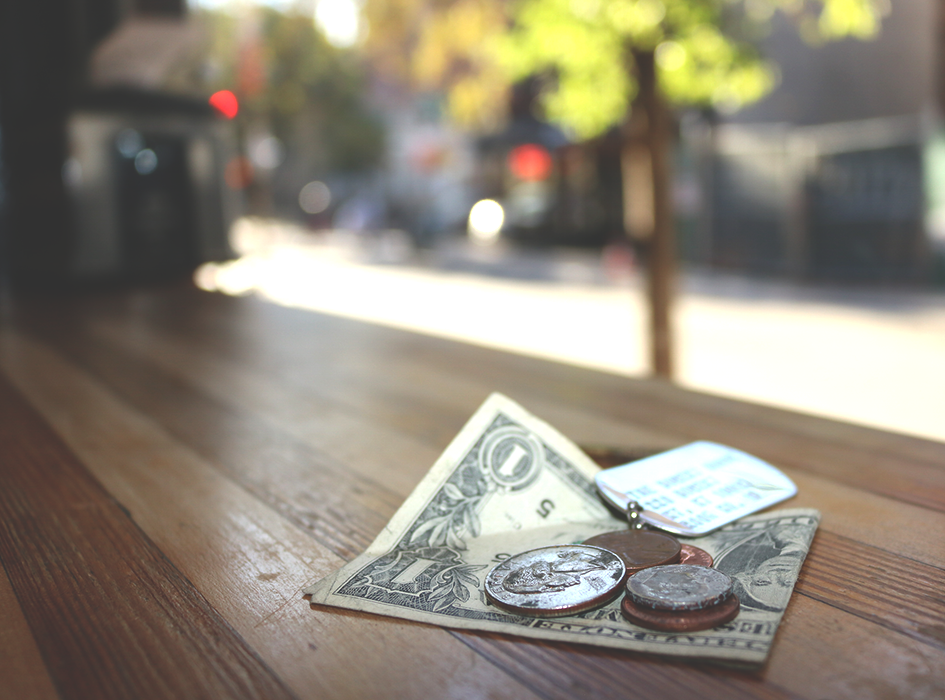Why I Stopped Using My Cash Back Credit Cards

When I turned 18, my mom let me know that I’d reached an important part of my financial life — I could get one of my very own cash back credit cards. I had always seen how much trouble people would get themselves into with credit card debt, so I was afraid of getting one in the first place. My parents, who’ve always been very responsible with money, shut this thought down almost immediately. They reassured me that if I treated my credit card like a debit card (meaning that I should never spend more than I have sitting in my bank account), I would be fine.
Reluctantly, I applied for the credit card, and got it in the mail within the week. After a few months of not being irresponsible (yay) with my standard US Bank credit card, my bank decided to reward me with a cash back version of the card I already had. Seeing how I wasn’t getting any rewards with my current card, I decided to go for it. My thought was, Why not? This piece of plastic is just an upgrade from my current piece of plastic.
Is it worth getting a cash back credit card?
Back when I first got these credit cards, I was at the age when I didn’t even try to budget (yikes). I just knew that if I tried to spend less than I made, I’d be fine. What I didn’t account for was that I could still potentially be spending money on things I didn’t really need. Seeing how I only worked a minimum wage job at a water park, you can see how this was not good.
Here’s where the problem really started, though: I thought that I was spending money on things I needed, AND I thought I was getting paid to get those things. My dangerous thinking ended up leading me to apply for another cash back card, because I thought it would be a great idea to boost my credit score while getting even more credit card rewards.
Currently, at the age of 20, I now have three credit cards: that original US Bank Platinum card, the US Bank Cash+, and the Discover It card. You know what else I have because of those three pieces of plastic? Stuff I don’t need, as well as cold, hard cash missing from my bank account.
How do cash back credit cards work?
I’m a mathematician — let me crunch some numbers for you. Here’s the deal: the absolute best cash back rewards offered currently is up to 5% on select categories. This means that even if you only bought things in those categories (which let’s be real, you’re not going to shop only at the weird stores and places they pick all of the time), you would have to spend $2,000 to get $100. You still spent $1,900 you didn’t need to.
Think what you could do with $1,900. That’s mortgage or rent. That could be tuition money, or money you could invest.
I’ve recently embarked on a journey to stop using my credit cards altogether. I decided that I was going to stick to using only cash and my debit card to pay for things. What I am now realizing is that the credit card marketers have gotten so far into my head that $2 in cash back sounds better than not worrying about paying another bill for some reason.
After doing some research, I found that the reason I feel the need to swipe a piece of plastic is because of instant gratification. Even just the phrase “cash back” makes us think we are getting something from nothing almost immediately. Even though I have numbers to prove why using these credit cards is a bad idea, my mind is stuck on the fear that I’m missing out on free money — the worst kind of FOMO. But you know what I’m missing out on when I’m using those cards? Not panicking about whether or not I remembered to pay a bill, not cluttering up my small apartment with things I really need, or having some extra cash.
Take a good look at your wallet, and ask yourself if your credit cards are tricking you into spending money you don’t really need to spend. If they are tricking you into spending money you don’t even have, I’d say cut those bad boys up and rethink your spending habits immediately…but that’s just me. Either way, I’d challenge anyone to stick to cash and a debit card for a while to evaluate your relationship with credit cards. Everyone is different, so you may discover that have a perfectly healthy relationship with you credit card. But I’m hoping this challenge will enlighten someone in regards to how things could be better, the way it enlightened me.
Don’t let the credit card companies’ clever marketers trick you into going into debt. You got this!
Hattie is currently working towards her undergraduate degree in Mathematics at Colorado State University.
This post was originally published on September 17, 2017, and has since been updated.
Image via Unsplash
Like this story? Follow The Financial Diet on Facebook, Instagram, and Twitter for daily tips and inspiration, and sign up for our email newsletter here.




